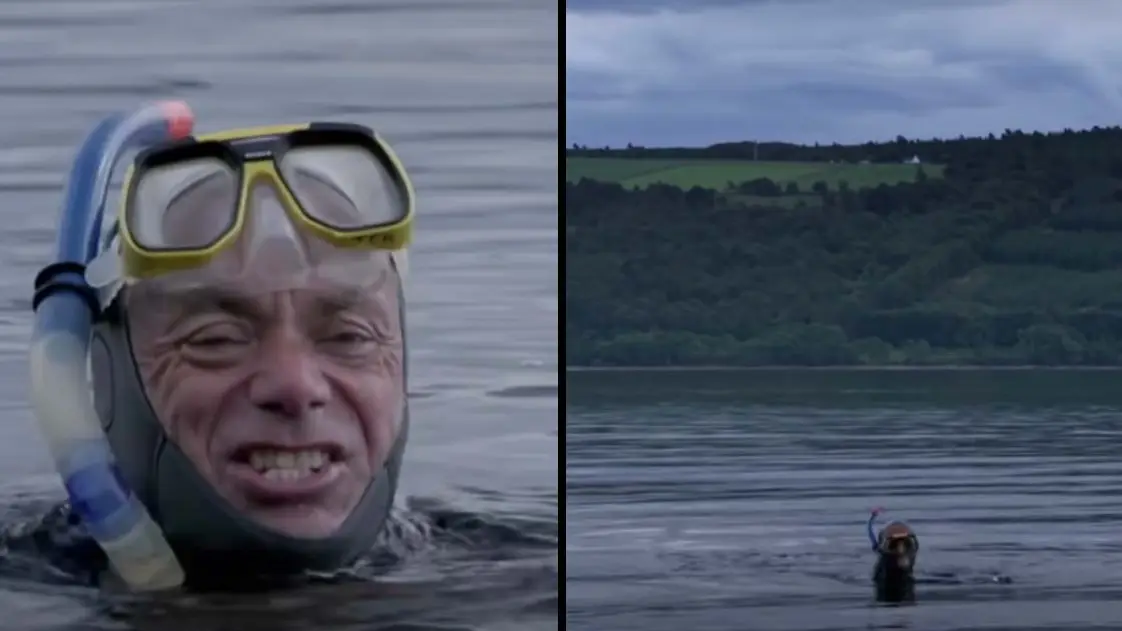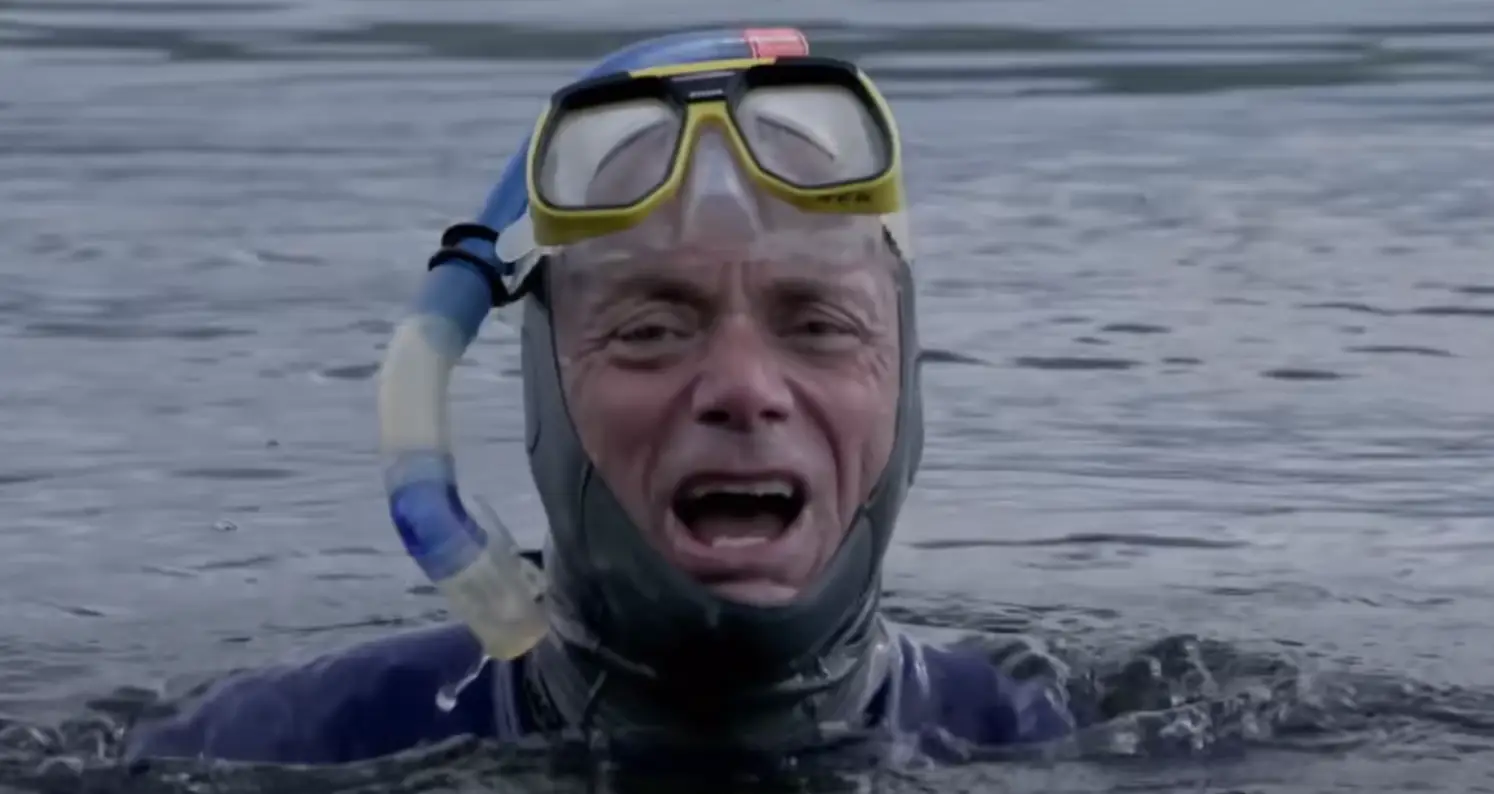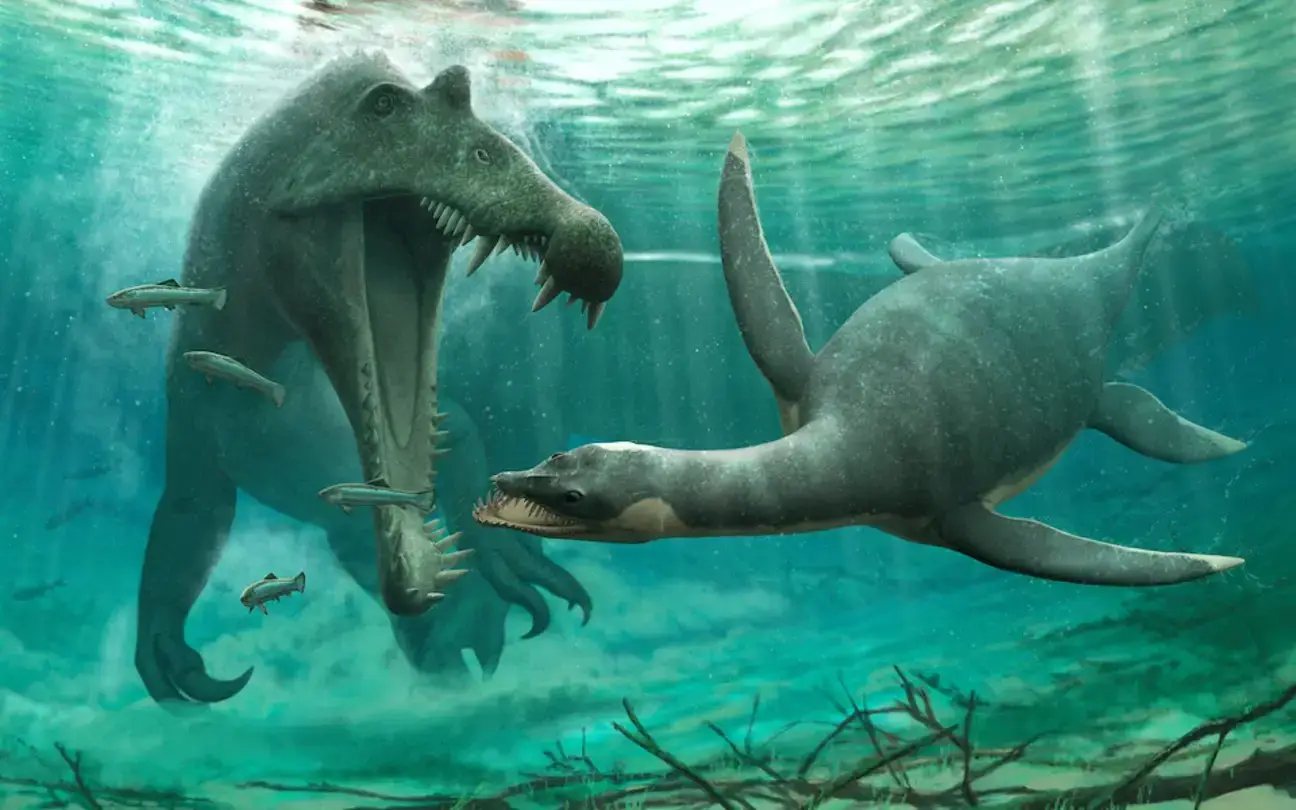
A diver was left spooked by what he saw after diving to the bottom of Loch Ness. See for yourself here:
Jeremy Wade lived up to his name, wading his way into the famous Scottish lake in an episode of documentary series River Monsters.
Fair play to him, people have been sat with binoculars and cameras desperate to capture a glimpse of the mythical Loch Ness monster for decades and nobody has been successful, it's about time someone got right in there and had a proper search for the big illusive bastard.
Advert
Sadly, he was unable to locate Nessie; in fact, he said it was so dark he said he wouldn't have been able to see it if it was right in front of him... so I suppose believers can still insist the mythical creature is real.
Describing the experience of diving in the famous lake, presenter Wade said it was 'spooky' how dark it is in the depths of the loch.
He said: "The water is translucent, but stained dark, the colour of tea, by peat washed down from the bogs that smother the surrounding mountains.
"The deeper I go, the darker it becomes, until it is literally pitch black."

Emerging from the water, he said: "This water - very, very interesting. Close in, you can see the bottom. There's this illusion of clarity.
"But if you follow the bottom out there's this sudden shoulder, and it just plunges down into deep water, and you look out there and it's just black, and it's not silt, it's this staining that the water's got. It just eats up the light."
He concluded: "Out in the depths there could be something the size of a submarine, you just wouldn't see it. It's really, really quite spooky."
As for the likelihood of Nessie actually existing, a university recently concluded that it might just be 'plausible'.
The mythical Scottish beast has been a part of folklore for centuries, and there have been countless apparent sightings of the mysterious creature.
But of course, very few among us actually think Nessie exists, partly because nobody has even managed to get a good picture of it, partly because the beast would appear to have a long-neck and a small head similar to a plesiosaur - meaning it wouldn't be able to survive in Loch Ness, because it is a saltwater creature.
However, scientists at the University of Bath, the University of Portsmouth in the UK, and Université Hassan II in Morocco have found small plesiosaur fossils in a 100-million year old river system that is now Morocco's Sahara Desert.
The fossils include bones and teeth from three-metre long adults and an arm bone from a 1.5 metre long baby.

They hint that these creatures routinely lived and fed in freshwater, alongside frogs, crocodiles, turtles, fish, and the huge aquatic dinosaur Spinosaurus.
These fossils suggest the plesiosaurs were adapted to tolerate freshwater, possibly even spending their lives there, like today's river dolphins.
Sharing the exciting discovery, the University of Bath stated that it makes the existence of the Loch Ness Monster 'plausible' - but the uni added the rather significant caveat that the fossil record 'suggests that after almost a hundred and fifty million years, the last plesiosaurs finally died out at the same time as the dinosaurs, 66 million years ago'.